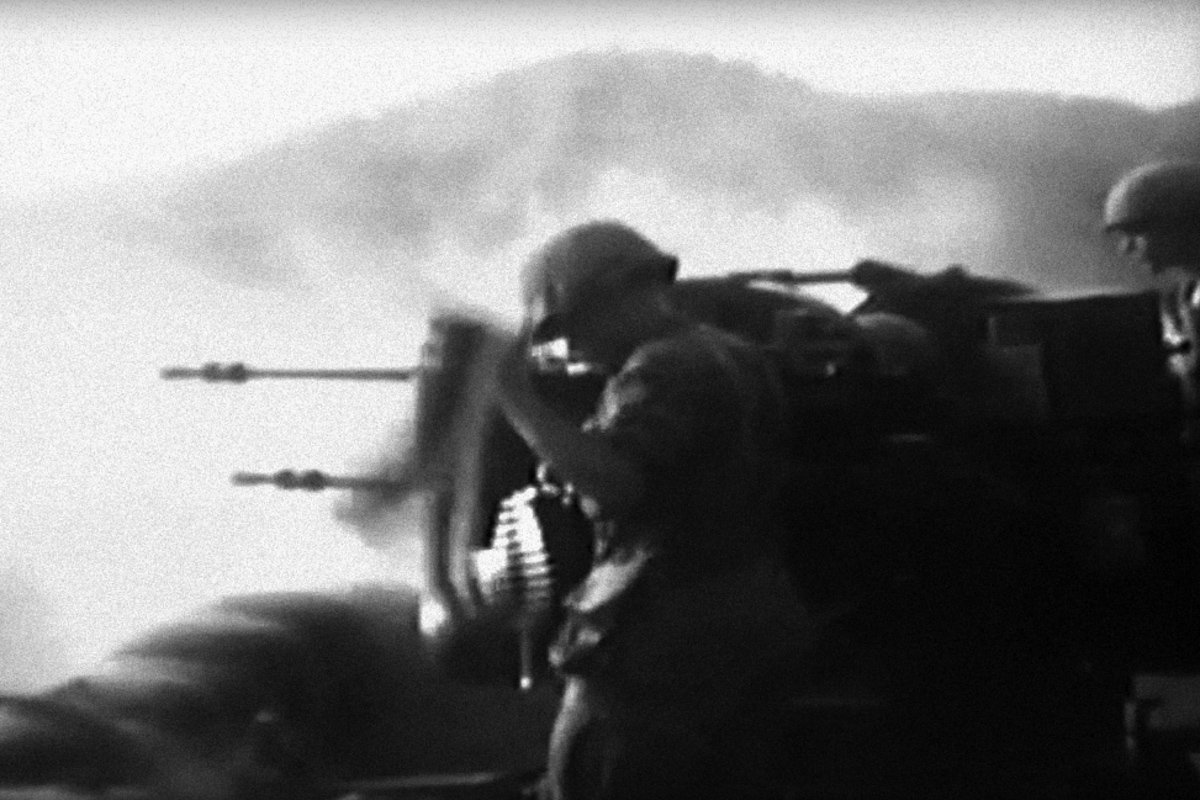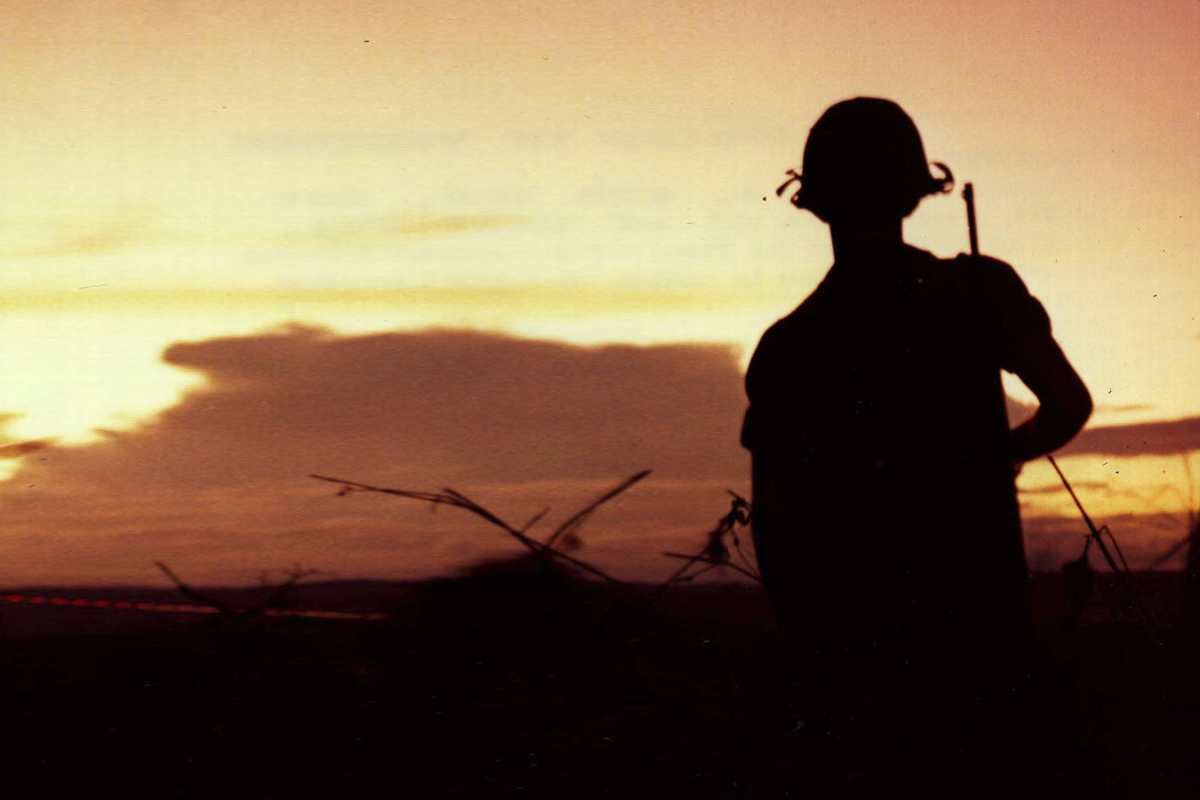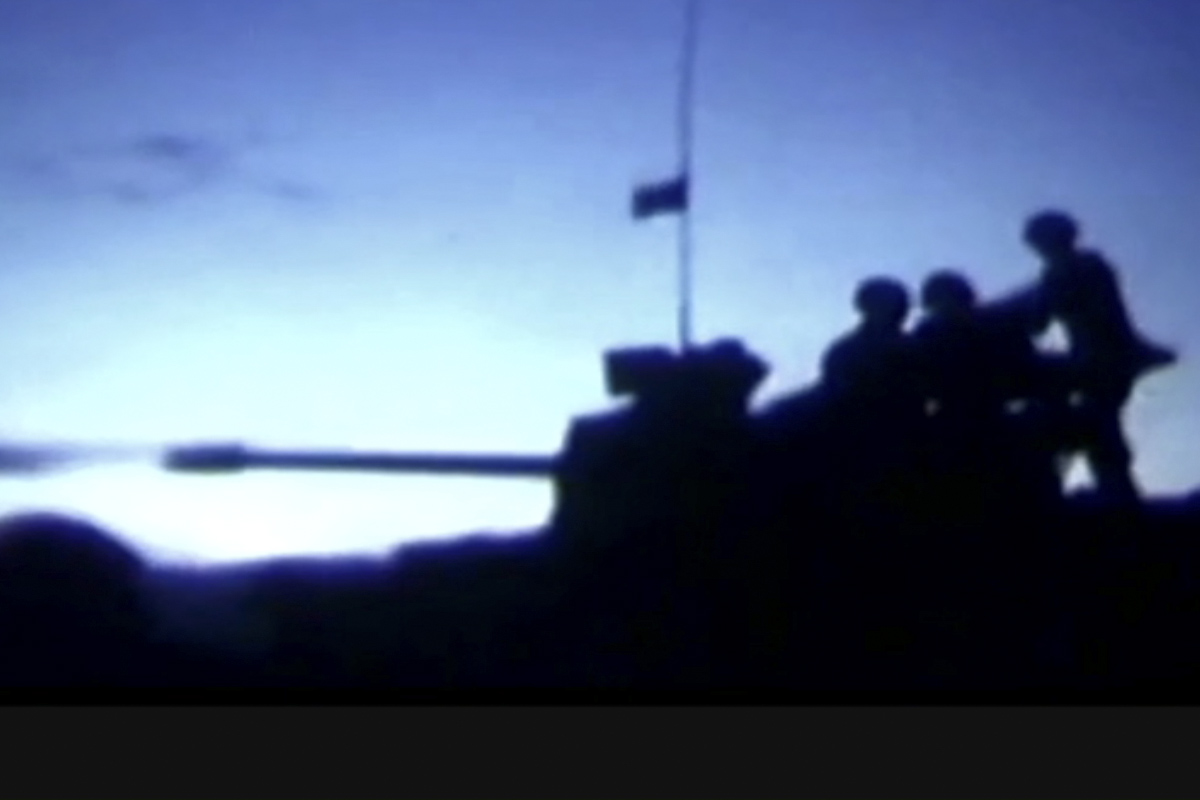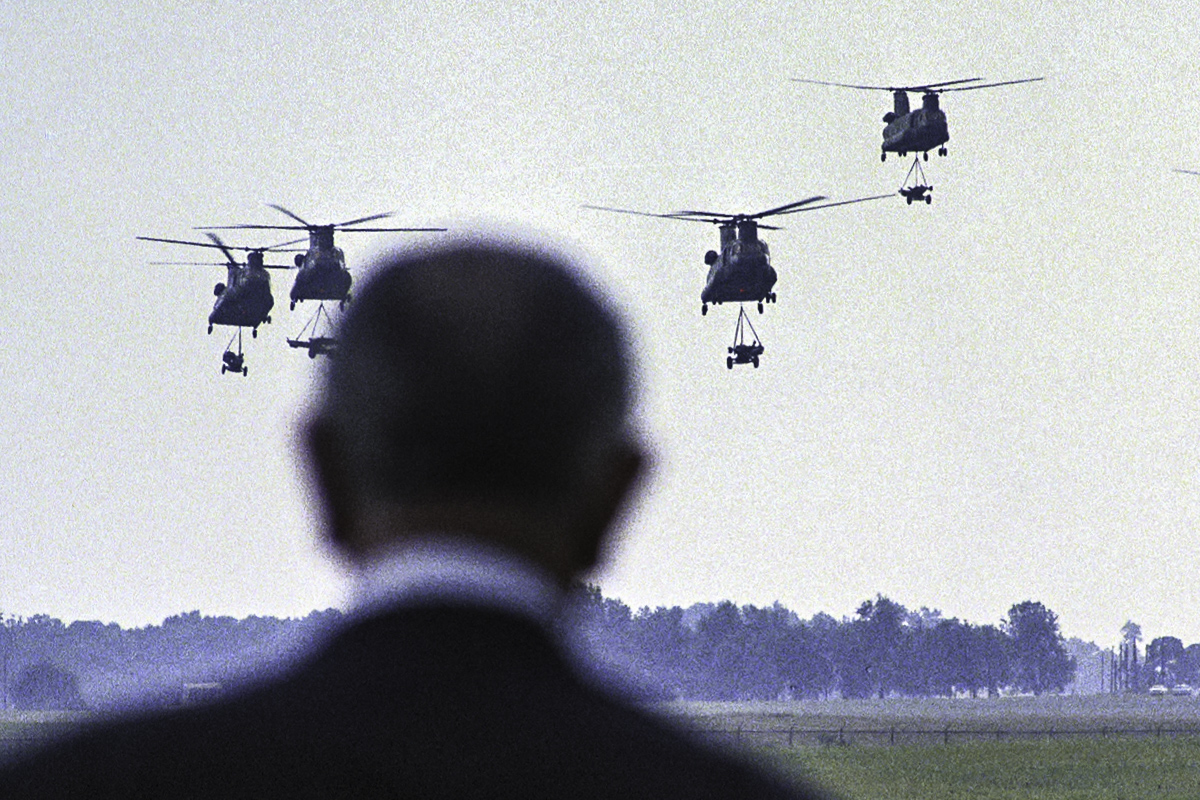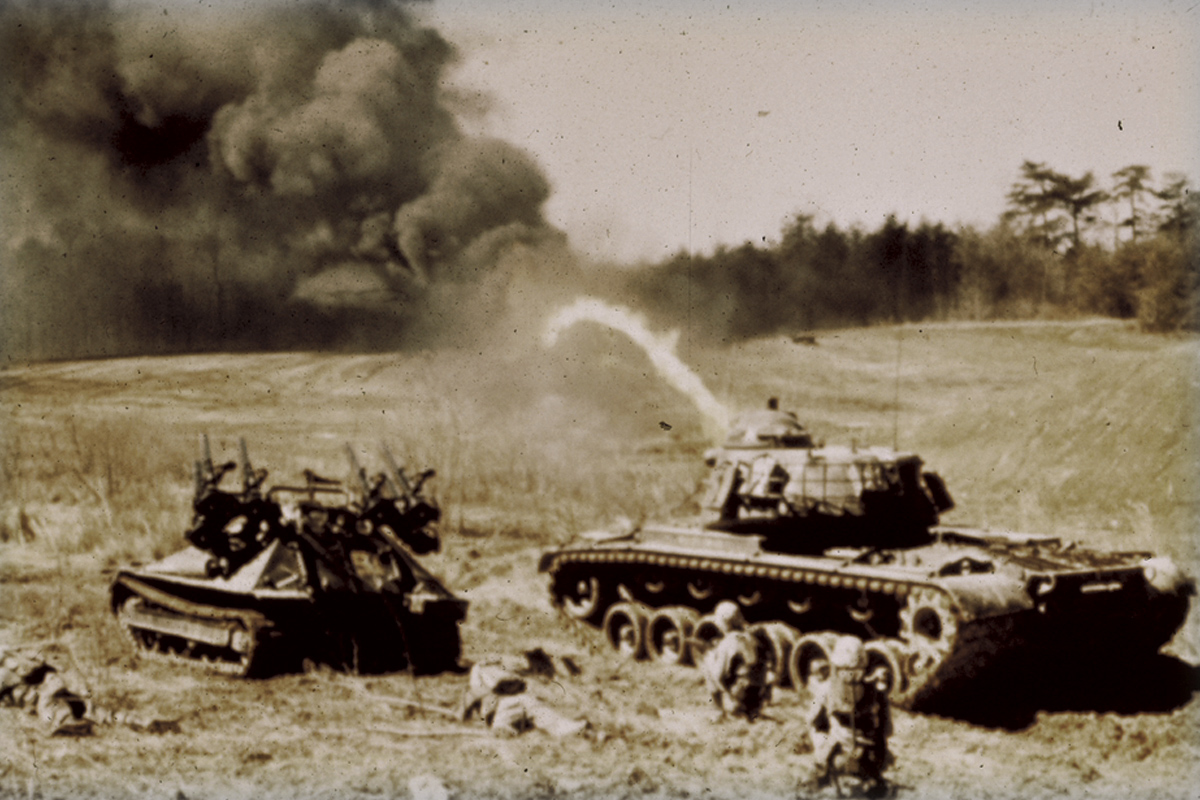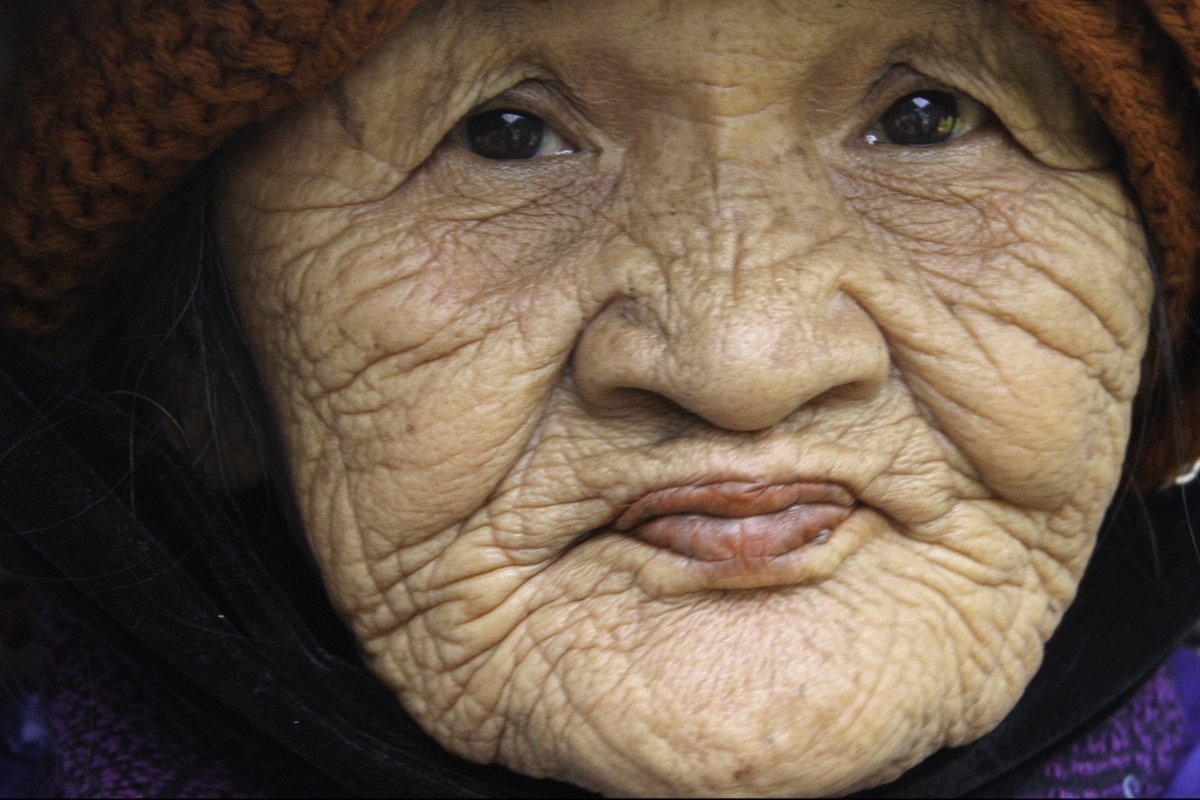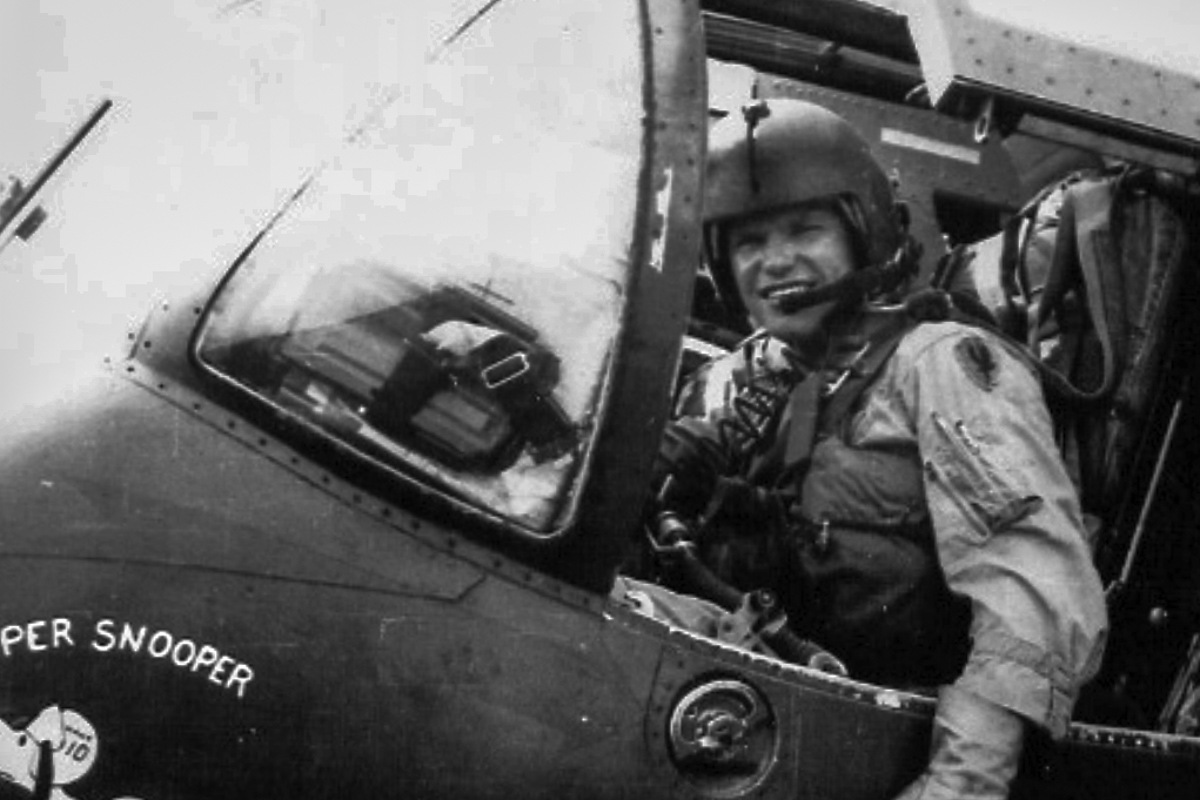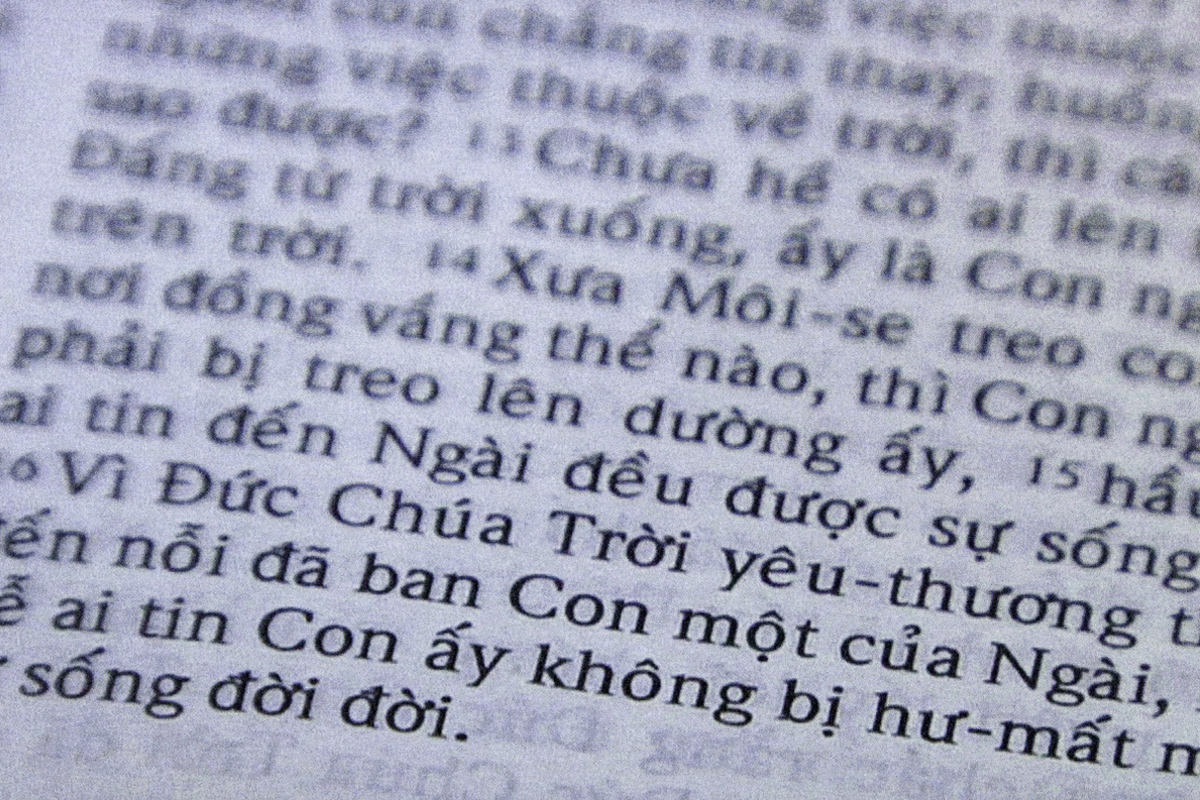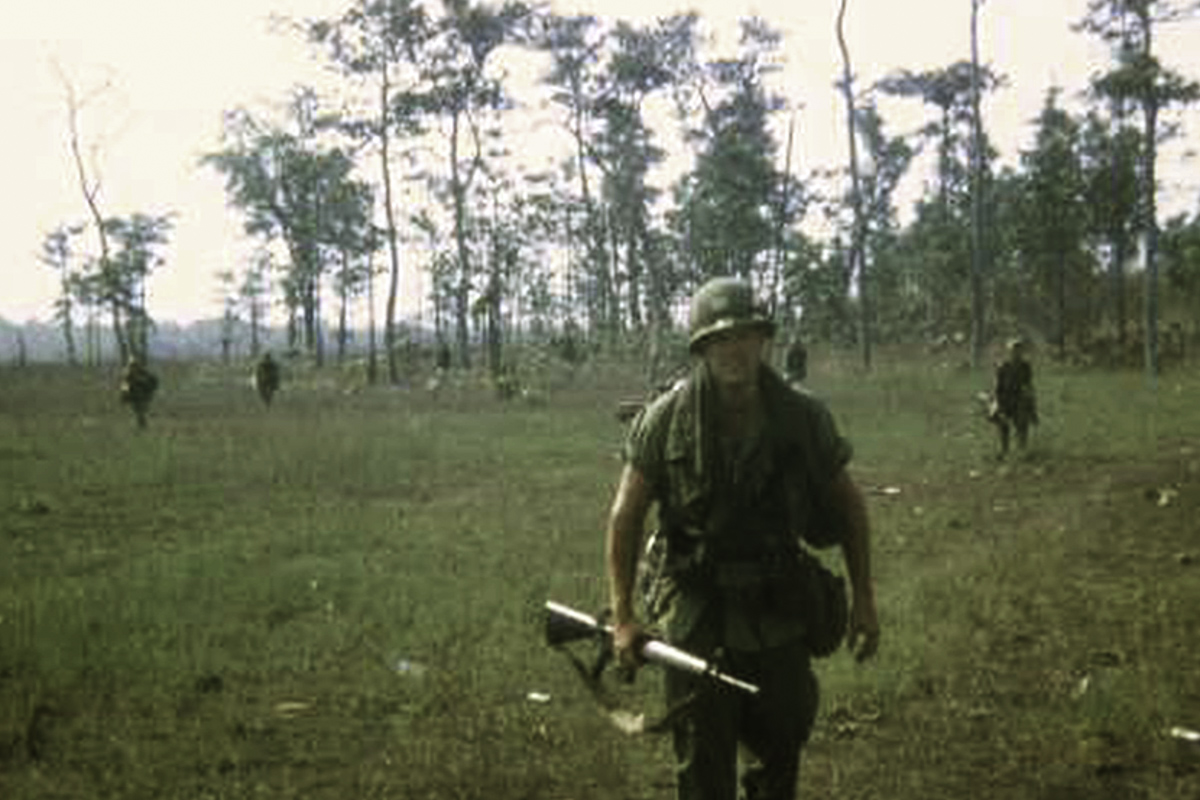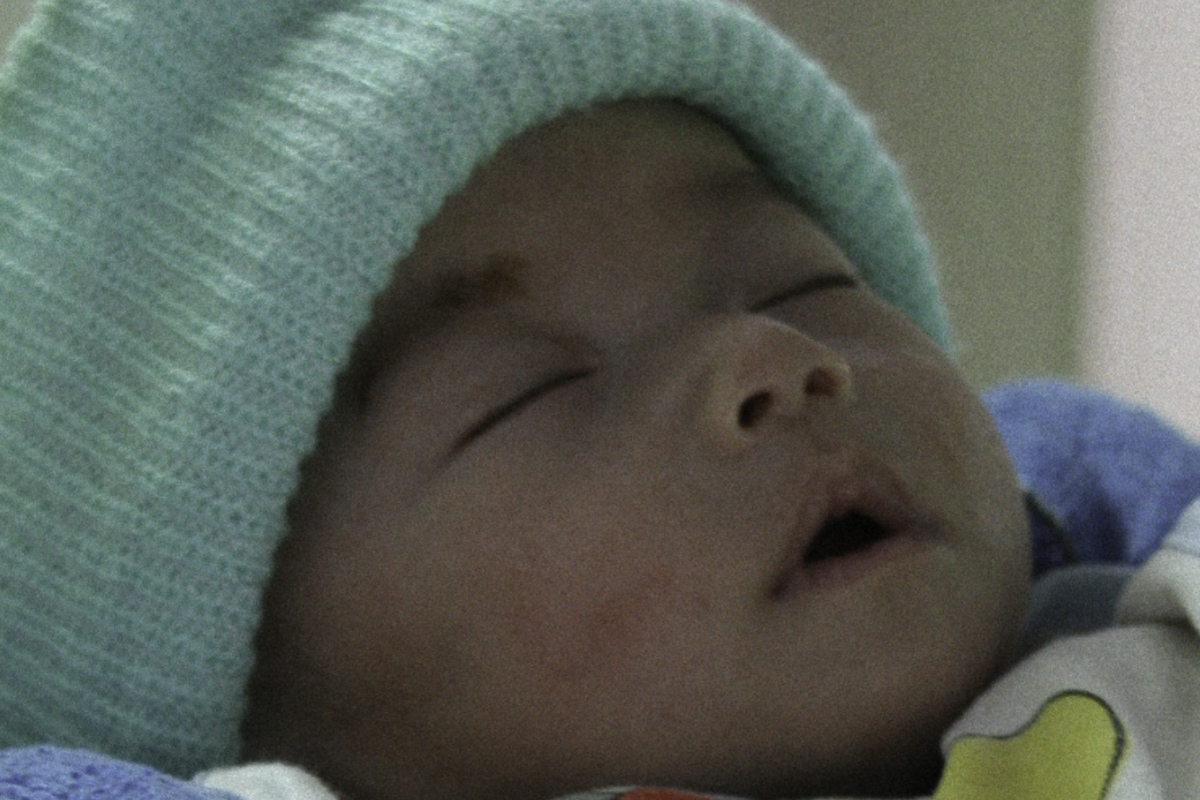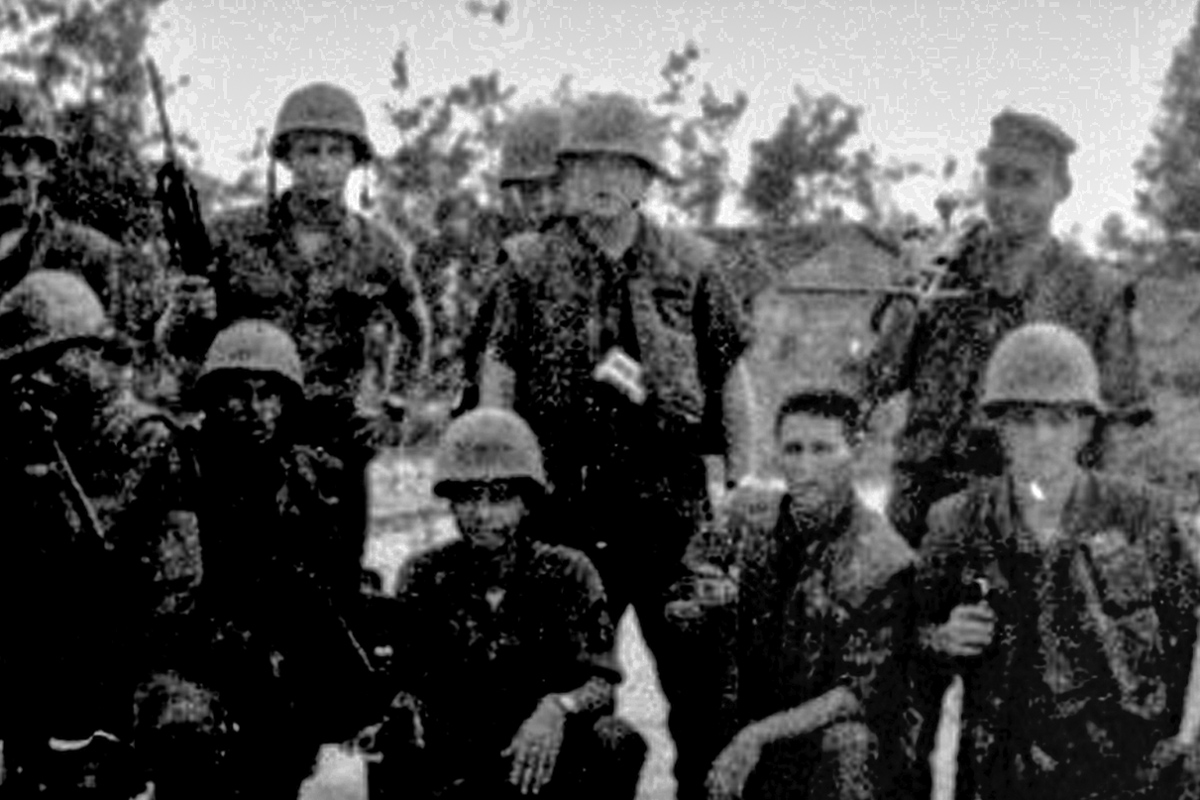
Tom Love
Episode 08 — The Work Being Done
Podcast: Play in new window | Download
Subscribe: RSS
SUMMARY: Vietnam Veterans tell about the work they’re doing today in Vietnam.
TEASER — Bob Peragallo: The Que Son clinic had a death rate of child birth of 33%. And in the first year after our clinic was opened, the death rate of newborn babies dropped to 3%.
INTRO — Kent C. Williamson: What do you get when you take a van full of Vietnam Veterans and a van full of U.S. Medical Professionals and drive them out into the jungles of Vietnam? This isn’t a joke by the way. The answer is that the Vietnamese people living in those rural villages get access to healthcare that they may never otherwise receive. And that right there is a major part of the work of Vets With A Mission.
Welcome to the By War & By God Podcast, I’m your host Kent Williamson. This show is a companion series to the award-winning documentary film By War & By God. It’s a place where we can go deeper into the stories of the lives of these veterans than we’re able to in the film. This season we’ve been telling the remarkable accounts of people who’s lives were forever changed by the Vietnam war. If you’ve been following the podcast you’ve heard stories of heroism, and stories of tragedy… but you’re also going to hear some amazing stories of reconciliation, all of which is the result of this magnetic force that tugged and pulled and eventually drew these soldiers, medics, machine-gunners and crewman back to Vietnam for the purpose of serving some of the poorest of the poor in that beautiful country.
But before we jump into the show, let me tell you about Big Heaven Cafe. Big Heaven Cafe is the online store for Paladin Pictures. It’s the place to go to purchase your copy of the documentary By War & By God (along with Paladin’s other films), so please click your way to Big Heaven Cafe dot com. That’s Big Heaven Cafe dot com and use the coupon code “podcast” to save five bucks on By War & By God. And remember that 20% of all sales of By War & By God from Big Heaven Cafe go to the non-profit Vets With A Mission, the group we’re talking about in this podcast that since 1989 has taken nearly 1400 Vietnam Veterans back to Vietnam. Why do they go back? For healing and reconciliation… and all the things you’ll learn about in today’s episode and the next few shows..
Today, we’ll hear about The Work Being Done… But as you recall from last week, in the late eighties and early nineties, Americans weren’t going back to Vietnam. So for this group of Veterans who wanted to do something good there they had to find work that they could help with, so they made a couple of fact-finding trips back to Vietnam to meet people and line up projects. We’ll jump in right there…
Phil Carney: Well on the first trip they had made contact with a Catholic nun, Sister Jean Marie, who had run by herself a polio orphanage in Saigon.
Kent C. Williamson: This is Phil Carney…
Phil Carney: She had no support or help, but she gathered up all of the Polio orphans off of the streets, and did her best to care for them. And that was the initial contact Vets With A Mission had made on their first trip. So on the second trip that I was on there was a small project to build a pool, a swimming pool for some water therapy for her kids, as well as bring different supplies and so on. To help that pool, so the thrust of that trip was the polio orphanage in Saigon.
DROP IN — Kent C. Williamson: Polio or poliomyelitis is a highly infectious viral disease that storms the nervous system, and may result in total paralysis within hours. According to the World Health Organization polio has decreased globally from an estimated 350,000 cases in 1988, to only 37 reported cases in 2016 due largely to vaccination efforts. Vietnam was certified as being polio-free in the year 2000 while the United States became free of the disease back in 1979.
Bob Peragallo: We built one of our early clinics in the Que Son Valley.
Kent C. Williamson: This is Bob Peragallo…
Bob Peragallo: The health center had a general care facility, it had a dental unit and it had a birthing unit. The Que Son clinic had a death rate of childbirth of 33%. And in the first year after our clinic was opened, the death rate of newborn babies dropped to 3%. And our investment in that commune was twelve thousand dollars for this health clinic. And so, a twelve thousand dollar investment in this rural area that served thirty three thousand people – that’s a lot of bang for your buck.
Mike Bernardo: The clinics that we work at…
Kent C. Williamson: This is Vets With A Mission Medical Director, Mike Bernardo.
Mike Bernardo: They’re usually well maintained brick or concrete, cement structures.
Kent C. Williamson: Describe the conditions…
Mike Bernardo: Fairly sterile – when I say sterile, I don’t mean sterile in terms of germs. Sterile in terms of the amount of things there to sort of soften the features of the rooms. Usually there’s a – maybe a chair or a couple of chairs, or just a wooden bench, or a wooden bed. So, fairly sparse. But not a lot of supplies, not a lot of medication – and certainly not – not of any medications. Most of them or very few. Some basic supplies, but not a lot – and not a lot of equipment.
Tom Love: The conditions in Vietnam are not unlike a lot of other conditions. You go to a village that’s sort of a shock at first, but after a period of time, you begin to realize that this is not unusual in terms of third world treatment, and what you see.
Kent C. Williamson: This is Tom Love…
Tom Love: We go out to the rural parts of the country, we’re not in the big cities. You really see the poor people, and the primitive situation they live in. Single room homes. They’re dirt floors, they have little or nothing – I mean little or nothing. You look around and they have nothing. They have a set of clothes that they’re wearing. Maybe the second set of clothes is on the line drying from the washing. Their kids are happy and joyous, with what little they have, and I think that really touches you. But I think overall it’s a struggle. And you see the wrinkles on their hands and their feet. You know that their back breaking jobs of planting rice, and they’re stooped over. We’ve observed them in the fields as we pass by in a bus. It’s – I think it really touches your heart that you’re really making a difference in their life.
Kent C. Williamson: What was the worst case that you saw over there?
BREAK: But first… Have you been to Vietnam on a trip like this? What was your experience like. Record your response on your phone and email it to me, or type it up and send it to me at Kent at By War And By God dot com; that’s Kent… K E N T at By War AND By God dot com. I’ll look forward to hearing about your visit. And we might put some of your stories into a future episode.
Now back to the show…
Kent C. Williamson: Several of the people in today’s episode are NOT Vietnam veterans. Vets With A Mission doesn’t require you to be a Vet to join them on their trips. Some of the people your hearing today are medical professionals, CPA’s, and businessmen. People just like you who decided to go… to make a difference; who answered the call, so to speak. Alright, now let’s really get back to the show…
Kent C. Williamson: What was the worst case that you saw over there?
Mike Bernardo: There was a young guy who was out working in his field, working in the field behind his house about seven years ago. Hit an unexploded land mine that exploded in his face.
Kent C. Williamson: Again, Mike Bernardo…
Mike Bernardo: So when we saw him, his face was disfigured and scarred. He actually was missing an eye, it was a very traumatic thing for him. And we were able to connect him up with surgeons in Hue, and they were able to fit him with a prosthetic eye, and to help correct some of his scars. So that was the most, I’d say the most meaningful encounter we had was with him. There were some other folks that we actually were able to help. One lady we were able to give her a glucometer. She was a diabetic, had no way to check her blood sugar, and we were able to get them a glucometer and supplies for her to monitor her sugar. Which was a great – a great thing that we do in the States that we take for granted all the time, that she had no ability to do.
Kent C. Williamson: Again, Tom Love…
Tom Love: When we take out a tooth that’s abscessed, infected, that somebody’s had pain and problems for maybe a year or two – that tooth is gone, that’s the end of the problem. And so I think we, in the dental field, feel a lot more – sense of accomplishment, because we’re able – actually able to finish off a process, and that’s a good feeling.
Tim Schwulst: I worked at the optometry unit. And gave – helped fit glasses after the optometrist looked at them.
Kent C. Williamson: This is Tim Schwulst…
Tim Schwulst: The only problem we had there was, we ran out of men’s glasses, and so we were trying to give women’s glasses to these Vietnamese men, and they were having kind of a problem with that. So we had a few tense moments there when that guy refused to put the pink glasses on.
Pat Cameron: I’ve had patients that I could do nothing for.
Kent C. Williamson: This is Pat Cameron…
Pat Cameron: Cataracts over there are horrible. We didn’t have the equipment or the staff to do anything and it was so – so sad that they came in and you – they think if I gave them something it was going to help them. Sometimes I just gave them something. Like the cataract people, I just give them a set of sunglasses. Give them something. Because sunglasses would at least help the brightness. Because obviously, lights a real sensitivity problem with them.
DROP IN — Kent C. Williamson: Speaking of cataracts… I made two trips to Vietnam while filming material that ended up in By War & By God. On my first trip, some friends in the United States had given me money to help the people there however I saw fit. One morning while I was filming the daily Vets With A Mission medical briefing the doctors mentioned seeing an elderly woman at the clinic the previous day who could benefit from cataract surgery. Vets With A Mission coordinates these procedures with hospitals and doctors in Vietnam and the cost there is only a few hundred dollars to fix both eyes. Following the discussion of the old woman’s cataracts one of the team members stepped up and volunteered to cover the cost of one eye… and then the room got quiet. At that point I turned my camera off and set it down. I reached into my pocket and pulled out the money my friends back home had given me and I laid it on the table. And THAT easily we helped a woman blind with cataracts be able to see again. I like to think of that grandmother staring at her grandkids as they play in the village. And all it took to make that happen was a few people who cared.
Mike Bernardo: When we go and do a medical team with the Vietnamese people, they’re very appreciative, very kind. They seem to be very gentle souls…
Kent C. Williamson: This is Mike Bernardo…
Mike Bernardo: They are definitely appreciative of the care that’s given. No matter what it is that we give. Even if we can only give them a few bags of medications. They’re very appreciative of anything that we do. So yeah that’s a big – that’s a big difference. And certainly in the States we have patients that are very grateful for what they get – what kind of care we give. But, it’s different, it’s different there – there’s a much higher level of gratitude. Gratitude is a major part I think of why people from the US want to go back, because that sense of appreciation that comes from the Vietnamese.
Chuck Ward: Vets With A Mission has had some great days in Vietnam, and we’ve had some bad days.
Kent C. Williamson: This is Chuck Ward…
Chuck Ward: And for me, the worst day was back around – it was the year 1999 or 2000. And we had a medical team that was going to two villages out in Khe Sanh Valley and it was always difficult to get permission to go to these villages. The government didn’t want you out there, but we’d gotten permission to go to these two villages. Primarily because someone on our team was a Vietnamese-American, who actually grew up in that village. So we were very excited about going there. About a month before the trip, I had written a letter and appeal for Vets With A Mission, that went to everyone on our mailing list. Well, one of the people on that mailing list was a social work professor from an upstate New York university. He happened to be in Da Nang, where we were, doing a social work project in conjunction with the government. Well, when he got that letter, he disagreed with it’s content. And the content was about a Vets With A Mission team that had gone to Khe Sanh the previous year. And the day before we got there, an individual had stepped on a land mine or had disturbed a grenade in the soil. Horribly wounded. When we got to visit this village in Khe Sanh, which was tribal people, ethnic minorities – this individual was dying. Well, we arrived in our vans. We always brought supplies and gifts for the chief and the people at this village. Well they came running to us and had us go to this hut. And we go in this hut and this guy is laying there, horribly wounded. So the Vets looking around saying, “Wow, this guy really needs to be medivaced, he needs a doctor, he needs to go to the hospital now.” And we, there was nothing we could do, except pray. So we did. We assembled around, we laid hands on him, preyed on this poor farmer, and then we left. So now, it’s a year later. And I mentioned sending out that appeal, and the social worker, professor got – well, when he found out we were in Da Nang, he was livid. He thought the letter was hocus-pocus. He didn’t agree with it. There’s no way something could happen that I put in that letter. And what happened in that letter is that I explained how a year later, we went back to that village. The village people came out running, so excited to see us. The chief came and said, “Come, come, come.” We went and met this young man, who had exploded that mine or that grenade. And he was absolutely well. He hadn’t even gone to a doctor. So for us it was a miracle. And the village chief even said it was a miracle. Well, this social worker in Da Nang disagreed. When he found out we had a medical team in Da Nang, he went that afternoon to the government and told them a pack of lies. That we were gonna distribute bibles when we saw the patients that we were gonna pray for every patient. We we gonna try to do miracles. And of course, that just freaked the government out. And they cancelled our visit to those two villages. And because of that social worker, two villages, approximately 1200 people received no healthcare, and they stopped our team from working for two days and we just sat around the hotel. And that’s one of my worst days in Vietnam with Vets With A Mission.
Kent C. Williamson: What are some of the most exciting things that you’ve seen Vets With A Mission be involved in over the years?
BREAK: But first… We’re giving away the soundtrack to the film By War & By God, so if you like the music you’re hearing, go to By War And By God dot com, click on the Soundtrack item on the menu and download all 8 tracks of Will Musser’s great score. It’s free! I’d be grateful if you did two things… first, tell a friend about us, and second, leave us review on iTunes. Your words will help others know that this show is worth listening to. Thank you!
All right, let’s get back to this episode…
Kent C. Williamson: What are some of the most exciting things that you’ve seen Vets With A Mission be involved in over the years?
Jim Proctor: We’ve built well over 25 medical clinics. The fact that now we’re going back and staffing those and training those. That’s exciting.
Kent C. Williamson: This is Jim Proctor…
Jim Proctor: Because the organization’s always been trusted by the Vietnamese Authorities, they’ve allowed certain latitudes and us to do certain things that maybe some other organizations haven’t. And one of them was printing Bibles. Vietnam has had a lot of people when it first started opening up in the late 80’s and 90’s that wanted to go in there and work on projects and do things. But it was for the splash in the pan, the effect. And sometimes those people would complete a project and then leave. I mean, there are stories of well-known evangelists, well non-profit type people that would go over there, and it was more of a PR-type thing. And they would do some work, but then they’d leave and everything would go back to normal. Vets With A Mission has always been low key. We don’t care if we get the big press and the big recognition. And we just do what we’re supposed to. And then over a period of – well into 5 to 10 year period, we had had that trust with the Vietnamese government – as much as communist government will trust people. Because the pendulum swings back and forth, as to whether – how much they trust you and what their comfort level is. So, we just always built up that track record that we did what we said we were gonna do. And sometimes to the surprise of them. Because they – our projects got done quicker, sometimes under budget. They were first class. I mean, some of our medical clinics have become prototypes for the country. So, from that respect, we had the credibility, and that has allowed us a certain flexibility. To do things like – even at one time, to print Bibles. Again, the pendulum swings. I think there has been times when they’ve been more open to allowing some evangelism or some evidence of Christianity. And there’s been other times where that’s just not an option, you just don’t even bring it up.
Dave Carlson: I had probably some of the most memorable experiences of my life.
Kent C. Williamson: This is Dave Carlson…
Dave Carlson: What I didn’t expect was to get the opportunity to actually see the results of some of the work we were doing. On that trip, was my first opportunity to see what Vets With A Mission was accomplishing with our vets. To me it was all about doing something in Vietnam for the Vietnamese. But there was one individual on our trip who had not had a night’s sleep in 30 years, since he left the war. He had some real serious issues. His whole goal in going on this trip was to be sure to visit the field where his best friend died. And I’m sure he had tremendous survivor guilt. Of course, a lot of these veterans went home believing they had destroyed a country, believing they had destroyed a people. And instead, when he landed in Saigon and spent the first couple of days there – something inside of him healed. He slept like a baby for the first time in 30 years. He came away, no longer really wanting to see where his friend was killed. He wanted to do something positive for the country, but he was relived of the guilt that he had been carrying for decades, that he had destroyed these people or destroyed this culture. And he hadn’t – they’re wonderful, they’re beautiful people, they’re loving, they’re fun, they’re full of joy. And he walked back into that and said, “Then it’s all okay.” And he could sleep. And I had never known the therapeutic value of going back to country. That these veterans were – have an opportunity to participate in. Since I wasn’t a vet, I really couldn’t understand that, but I got to see it first-hand.
CLOSE & CREDITS — Kent C. Williamson: Thank you for listening to this episode of the By War & By God Podcast from Paladin Pictures. A quick reminder to subscribe to the podcast so you don’t miss an episode. Please tell your friends about us. You (and they) can learn more about By War & By God at By War And By God dot com. Don’t forget to use the coupon code “podcast” at Big Heaven Cafe dot com to save some cash on your copy of the film. You can also watch the By War & By God for free if you have an Amazon Prime account.
Find me on Facebook or Twitter. Just search for Kent C. Williamson and while you’re there search for By War & By God and like or follow us. Please email your thoughts about the show to Kent at By War And By God dot com. The film will screen on Friday, May 5th at the International Christian Film Festival in Orlando. So check it out if you can.
The By War & By God Podcast is written and produced by me Kent C. Williamson with Sound Design and Finishing by Ashby Wratchford. Our Audio Engineer in the studio is Steve Carpenter. Thanks also to my brother Brad Williamson who helped record the interviews in today’s episode.
The By War & By God soundtrack was composed by Will Musser and for a limited time you can download the soundtrack for free at By War And By God dot com.
Thank you to the entire Paladin Team which includes Leslie Wood, Steve Carpenter, Dan Fellows, Steve Lessick, and Ashby Wratchford.
This podcast is a production of Paladin Pictures. Yep, Paladin is a film production company that sees the value in audio podcasts. Why? Because like is the case with By War & By God… the podcast can go deeper into the story than the film ever can. Paladin Pictures is committed to the creation of redemptive entertainment and thought-provoking cultural critique. Learn more about us and our films at Paladin Pictures dot com. That’s Paladin P-A-L-A-D-I-N Pictures dot com.
By War & By God is produced at the Paladin studio in the amazingly wonderful, beautiful little town of Charlottesville, Virginia.
And of course, thank you to our Veterans… those who returned… and especially those who didn’t. Like my wife’s Uncle Floyd. Thank you!
EPISODE 08 – The Work Being Done
PLAYERS: Mike Bernardo, Pat Cameron, Dave Carlson, Phil Carney, Tom Love, Bob Peragallo, Jim Proctor, Tim Schwulst, Chuck Ward, and host Kent C. Williamson
LINKS:
Big Heaven Cafe – Save $5 on the DVD of By War & By God with the coupon code “Podcast”
By War & By God Soundtrack – Download the original soundtrack to the film for free!
